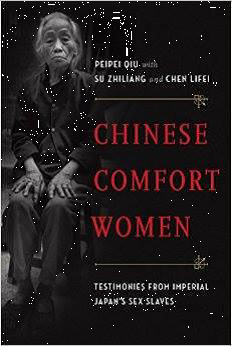
Summary and Review from the Nominator:
"Chinese Comfort Women: Testimonies from Japan's Imperial Sex Slaves features the personal narratives of twelve women forced into sexual slavery when the Japanese military occupied their hometowns."
"This is an important book on a little-discussed part of China's history. It is the first oral history of comfort women ever published and the first English-language account of these women's experiences. The book brings to light several previously hidden aspects of the comfort women system, ultimately exposing the full extent of the injustices suffered and the conditions that caused them."
Review from the committee member(s):
"This is the first English-language monograph to record the memories of Chinese women who were detained by the Japanese military at 'comfort stations' during Japan's invasion of China (Introduction, p. 1). The accounts of Chinese comfort women presented in this book expose the multiple social, political, and cultural forces that played a part in their life-long suffering. Indeed, their plight must be considered not only in the context of the war but also in the contexts of history and culture.
This book includes 12 Chinese women's narratives about their experiences in the Japanese military 'comfort stations' and their continued suffering after the war. The research methods include field investigations and interviews. This study was supported by the Emily Abbey Fund and a class of 2005 gift fund from Vassar College, and the field research was partly funded by Shanghai Normal University. The publication of this book is supported by the Government of Canada (through the Canada Book Fund), the British Columbia Arts Council, and the Susan Turner Fund granted by Vassar College.
This book consists of three parts. Part 1 provides the historical background of the narratives. Part 2 presents the narratives of twelve comfort station survivors. Part 3 documents the survivors' postwar lives and the movement to support the former comfort women's redress in China.
It is sad and horrifying to read about those Chinese, Japanese, and Korean women who became sexual slavery in wartime. Many were even killed at the end of the war in order to conceal the secrets. It is a touching story."









